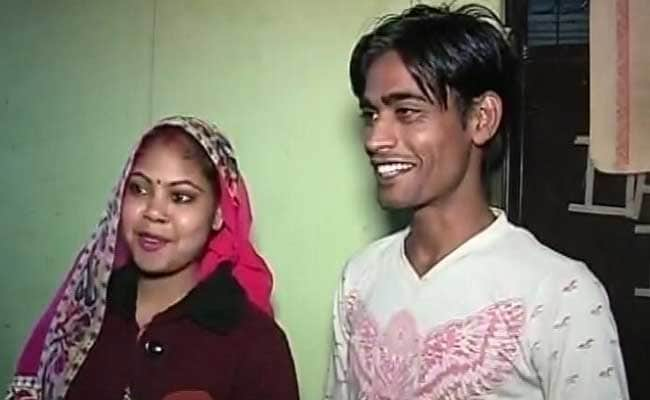Uttar Pradesh Polls 2017: Some Dalit families are still unwavering in their support for Mayawati's BSP.
Quick Take
Summary is AI generated, newsroom reviewed.
Meerut votes on Saturday for 7 assembly seats
In 2012, BJP won 4 of those
Mayawati's core base - Jatav Dalits - in high concentration here
"My parents have always been Mayawati supporters - natural because this house that you are seeing, it was built by Mayawati," says Komal, referring to cheap housing for the urban poor that was delivered by the Dalit icon and four-time Chief Minister who hopes to return to power this year.
It may have been five years since they moved into this house, but the support of Komal's parents for Mayawati is unwavering. Of her own choice, she says, "I don't know. I will decide when I have to wait. I like Modi also - he wants to do things for the country, I like him." When asked if her parents could dictate her vote, she said, "It is something I will have to consider." Outside, aware of the media crew in Komal's home, young boys outside start shouting "BSP Zindabad" and "Is Baar Mayawati Ki Sarkaar."
About 40 kilometres away, in a village, another young Dalit woman is also more educated than other relatives. But Rekha dropped out of school in Class 11, and at 19, she's already married. Her husband Dayanand, a daily wager, is barely literate. All the couple can afford as newly-weds is a one-room rental in the Dalit basti or slum. They point to the steep and risky ad hoc steps that lead up to their house, the open drains around it. Our family has always voted for Mayawati, as we are chamars,'' they say. A casteist slur, chamars is not a taboo word in their village, which uses it rather than "Dalits" to refer to the lowest castes "But we like Modi, he wants to do things for us. Look at the way he has done note-bandi (demonetisation)," praises Rekha, despite her husband having lost several days of work in the cash crunch that followed Prime Minister Narendra Modi's sudden reform. "Modi-ji has made the rich suffer; we all have to go through (some) pain, don't we?'' she asks.

Dalit women talk about their priorities to select a candidate ahead of the Uttar Pradesh elections.
Like Komal and Rekha, other young first-time voters suggest they may break from family patterns when deciding who to pick on Saturday. Zoya, who is not a Dalit and is enrolled at the local GNCT College in Greater Noida, one hour from Meerut, says she doesn't care about individual leaders but about issues. Lawlessness and women's safety especially. "Mayawati is best for tackling crime, I feel," she said. The BSP's main campaign strategy has been to promise a "goonda (thug)-free" Uttar Pradesh.
A classmate of hers, Danish Imam, also intends to choose Mayawati - but not because she has made a big play for Muslim votes with a record number of candidates from the community. "I am a first-time voter and I'm feeling very proud to give my vote to Mayawati." When asked why, he says that her promises "are the best" on offer.
For politicians, used to computing Uttar Pradesh on the basis of caste, young voters appear to be signalling their loyalty will have to be won on the basis of jobs, education, opportunity - something their parents rarely asked for as a critical component of elections.
Track Latest News Live on NDTV.com and get news updates from India and around the world

